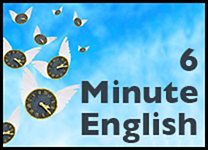Unit 2: English You Need
Exams, news, pronunciation, teachers' tips, learners' questions
Select a unit
- 1 English You Need
- 2 English You Need
- 3 English You Need
- 4 English You Need
- 5 English You Need
- 6 English You Need
- 7 English You Need
- 8 English You Need
- 9 English You Need
- 10 English You Need
- 11 English You Need
- 12 English You Need
- 13 English You Need
- 14 English You Need
- 15 English You Need
- 16 English You Need
- 17 English You Need
- 18 English You Need
- 19 English You Need
- 20 English You Need
- 21 English You Need
- 22 English You Need
- 23 English You Need
- 24 English You Need
- 25 English You Need
- 26 English You Need
- 27 English You Need
- 28 English You Need
- 29 English You Need
- 30 English You Need
Session 5
Learners' Questions
Welcome to Learners' Questions - the series where we answer your queries about the English language. What will this week's learner question be?
Activity 1
Learners' Questions
What and which
Cristina Gutiérrez wants to know: What’s the difference between what and which?
Watch the video and complete the activity

Dan
Hi guys! Dan here for BBC Learning English with this week's Learner Question. Find out what it is after this.
OK! This week's learner question comes from Cristina Gutiérrez. And she says: First of all, congratulations on your splendid programmes at BBCLearningEnglish - thank you so much - They are both entertaining and useful - Good, that’s what we want them to be - I'd like to know what's the exact difference in usage between what and 'which' at the beginning of direct questions. Well, Cristina, as you command, so we obey.
Now both are often possible with very little difference. For example, what or which is your favourite food? Or which or what is the best programme on TV at the moment? When we feel we have a limited number of choices, we prefer which. So, with a menu: which dessert shall we have? Or when looking at a multiple choice test: which one is the answer?
On the other hand, what is used when we feel we have an unlimited number of choices. So for example, what shall we have for dinner? Or what’s the answer to this question? Both can be used as determiners in direct questions when talking about people or things. They are always followed by nouns though. So, when looking at a line of cars I might say: Which car is yours? But, in general, I might ask: What car do you drive?
In talking about people we can use which to ask about identity and what to ask about job. For example, There’s a group of people over there. Which is your friend? Or, Tim’s a lawyer. What’s James?
I hope that answers your question Cristina. Thank you very much for contacting us. If anybody else out there has a question about English they’d like answered, you can email us on: learning.english@bbc.co.uk. Please remember to include Learners’ Questions in the subject line and your name and your country. You can also go to our website: bbclearningenglish.com. I’ve been Dan and I’ll see you next time on Learners’ Questions.
___________________________________________________________________
Did you like that? Why not try these?



__________________________________________________________________________
Summary
What and Which are often both possible with little difference:
What / Which is your favourite food?
Which/ What is the best programme on TV?
Number of options
When we feel we have a limited number of choices, we prefer to use which:
Which dessert shall we have? (When looking at a menu – there are only 6 options.)
When there is no limit to the number of choices, we prefer what:
What shall we have for dinner? (The answer could be anything.)
Determiners
Both what and which can be used as determiners in questions when talking about people or things. Determiners need to be followed by nouns.
What car do you drive?
Which car is yours? (When looking at some cars)
People
Which can be used to identify people:
There’s a group of people. Which is your friend?
What can talk about jobs:
Tim’s a lawyer. What’s James?
To do
Try our quiz to see what you have learned.
Learners' Questions Quiz
4 Questions
Decide if these sentences are correct or incorrect.
Help
Activity
Decide if these sentences are correct or incorrect.
Hint
Are there a limited number of options to choose from?Question 1 of 4
Help
Activity
Decide if these sentences are correct or incorrect.
Hint
Do we use what or which for jobs?Question 2 of 4
Help
Activity
Decide if these sentences are correct or incorrect.
Hint
Are there a limited number of answers in this context?Question 3 of 4
Help
Activity
Decide if these sentences are correct or incorrect.
Hint
Is the person being general or asking for a choice from limited options?Question 4 of 4
Excellent! Great job! Bad luck! You scored:
End of Session 5
Well, that's it for this unit! Join us again in Unit 2 for more Exam Skills, News Review, Pronunciation in the News, The Teachers' Room and Learners' Questions!
Session Vocabulary
What and which
Both are often possible. Often there is no difference.
We can use which for a limited choice.
We can use what for unlimited choice.
Both can be determiners.
Both can talk about people too.